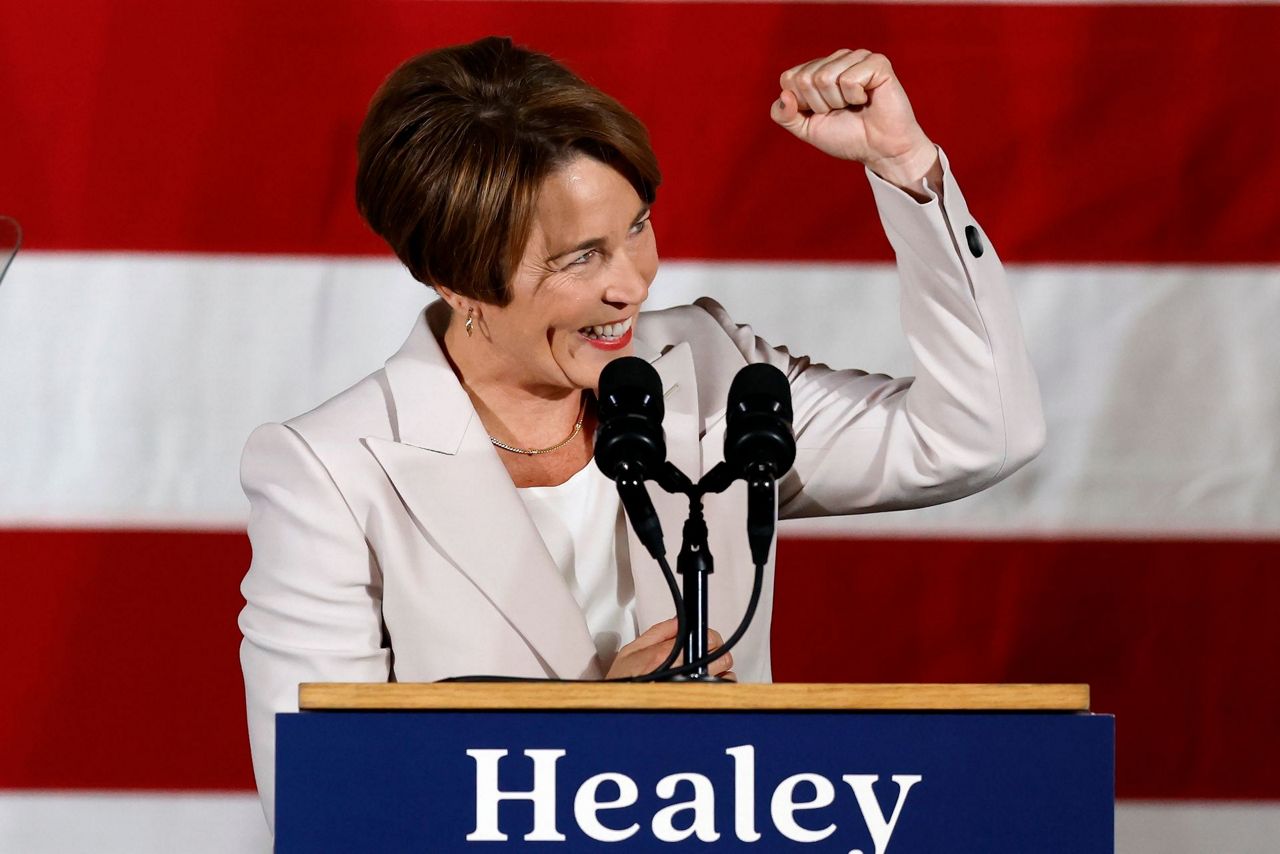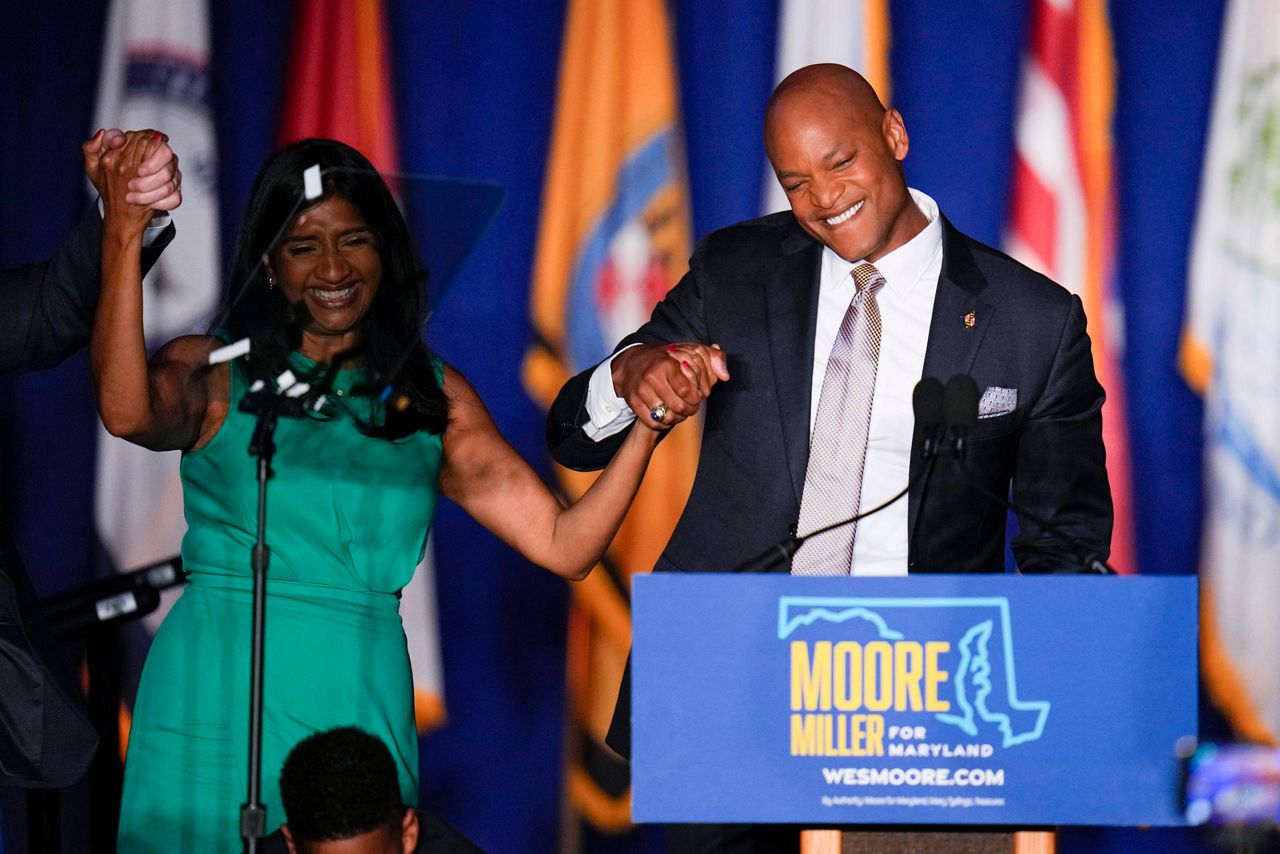A Massachusetts Democrat is the country’s first openly lesbian candidate to be elected to the office of governor. In Maryland, voters elected the state's first Black governor. Vermont will finally send a woman to Congress, after being the only state not to ever have female representation in the House.
Across the country, women, LGBTQ and Black candidates broke barriers as part of a new generation of politicians elected to governor's offices and seats in Congress.
The number of women serving as governors will hit double digits for the first time in 2023, with at least 12 women set to lead states. Ten had already won their races; two other races had not been decided but featured women candidates in both parties.
The U.S. has never had more than nine female governors in office at a time, a record set in 2004, according to the Center for American Women and Politics. The new record numbers mean nearly one fourth of the country's states will be run by women. The party majority for female governors is still not clear.
One of the winners, Maura Healey, is the first woman to be elected to Massachusetts' top post and also makes history by becoming the country's first openly lesbian candidate to be elected governor. If Democrat Tina Kotek wins Oregon's gubernatorial race, where The Associated Press has not declared a winner, she may join Healey in making history as a lesbian candidate elected governor.
Maryland voters chose Democrat Wes Moore, who will be the state's first Black governor. He is only the third Black candidate in the country to be elected governor.
Moore, a combat veteran, led one of the nation’s largest anti-poverty organizations and campaigned on creating equal opportunity for his state residents. He flips a governor’s office from Republican to Democratic. The current Republican Gov. Larry Hogan is term limited.
Florida, meanwhile, is sending the first member of Gen Z to Congress, with the comfortable victory of Democrat Maxwell Frost, a 25-year-old Black man with Cuban heritage.
Frost campaigned on gun control and Medicare for all and secured high-profile endorsements from progressive U.S. Sens. Bernie Sanders and Elizabeth Warren. The seat had been left open when Val Demings decided to run for Senate but Florida’s 10th District, which includes the Orlando area, is reliably Democratic.
Vermont has already had a female governor but it is the only state that has never sent a woman to Congress. Democrat Becca Balint, president of the Vermont Senate, will reach that milestone and also become the first openly gay person to fill the state’s single seat in the U.S. House.
Details on some other notable firsts:
- First female governor of Arkansas
Sarah Huckabee Sanders will become the first woman governor of Arkansas. Sanders, a Republican, rose to prominence when she served as White House press secretary for former President Donald Trump between 2017 and 2019. Her victory also makes her the first daughter of a former governor to fill the position held by her father. Mike Huckabee was governor of Arkansas from 1996 to 2007.
- Pennsylvania elects its first Black congresswoman
Democratic state representative Summer Lee’s victory in the state’s 12th District makes her Pennsylvania ’s first Black congresswoman. The Pittsburgh-based House seat was open after Mike Doyle announced his retirement.
- Illinois elects its first Latina congresswoman
Delia Ramirez, a Democrat, defeated Republican Justin Burau to represent Illinois’ 3rd District, in Chicago. Ramirez, 39, was the first Guatemalan American to serve in the Illinois General Assembly.
Copyright 2022 The Associated Press. All rights reserved. This material may not be published, broadcast, rewritten or redistributed without permission.




